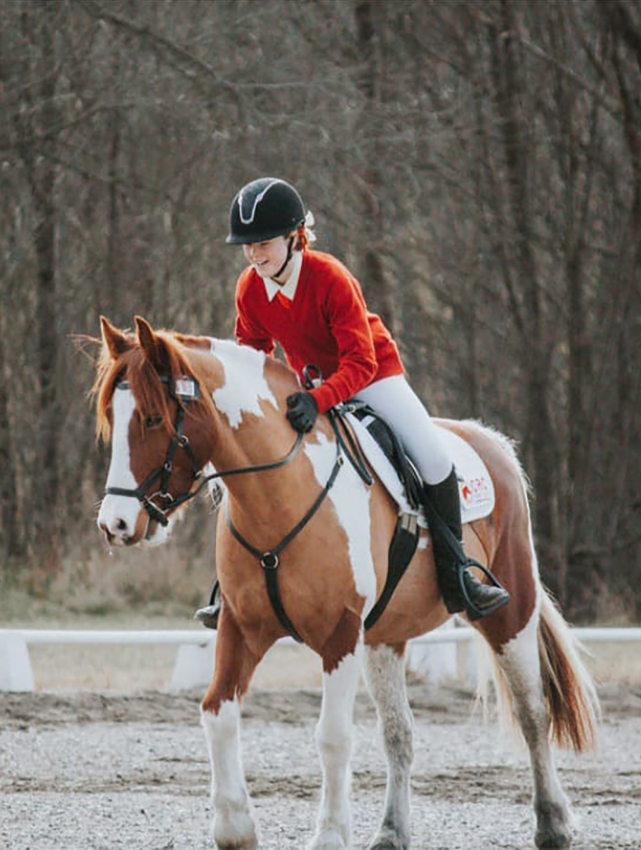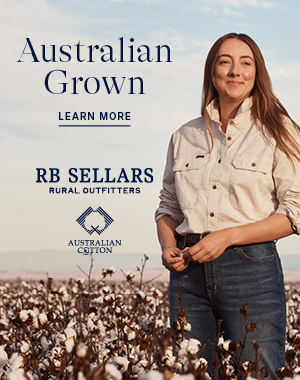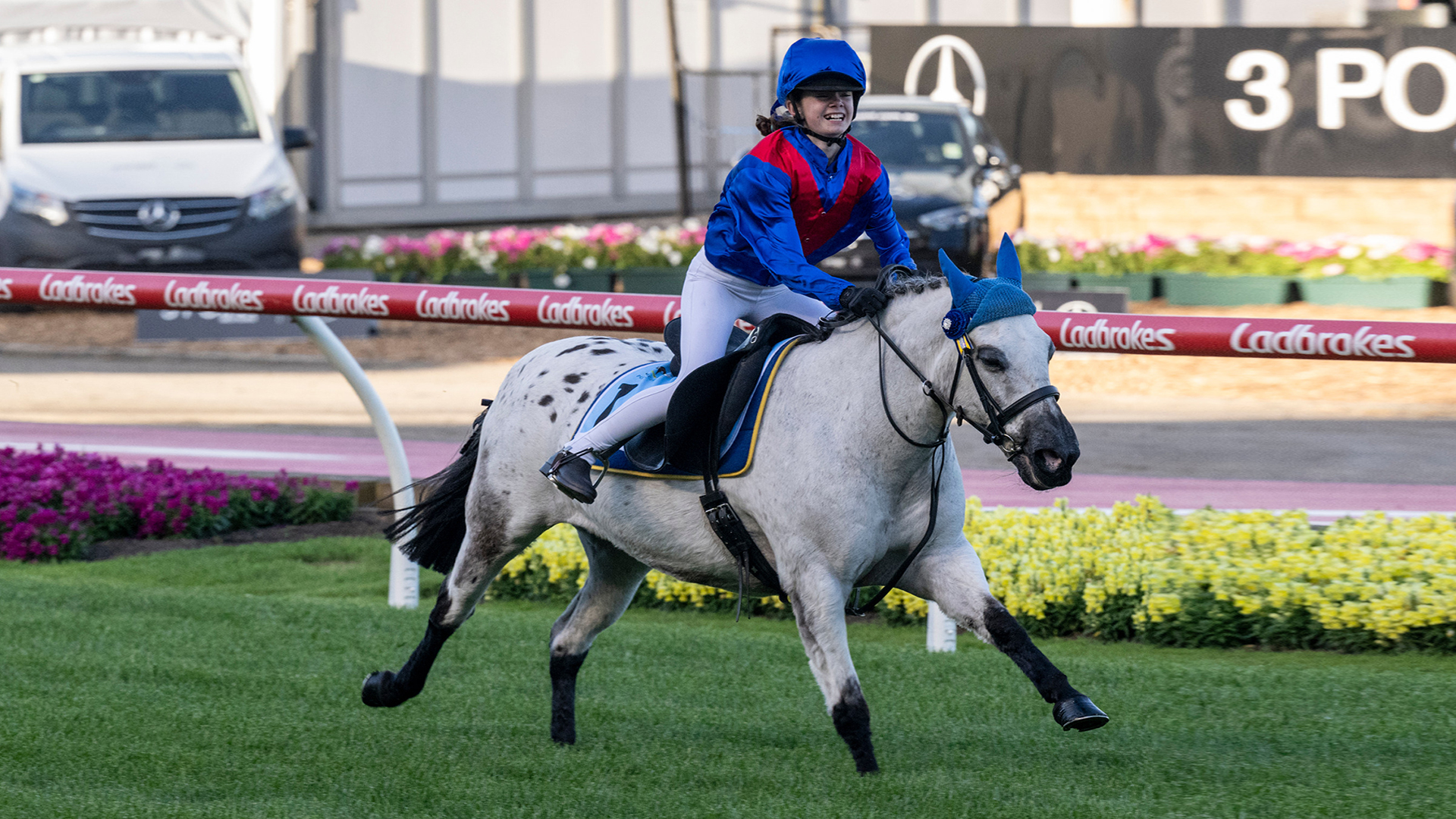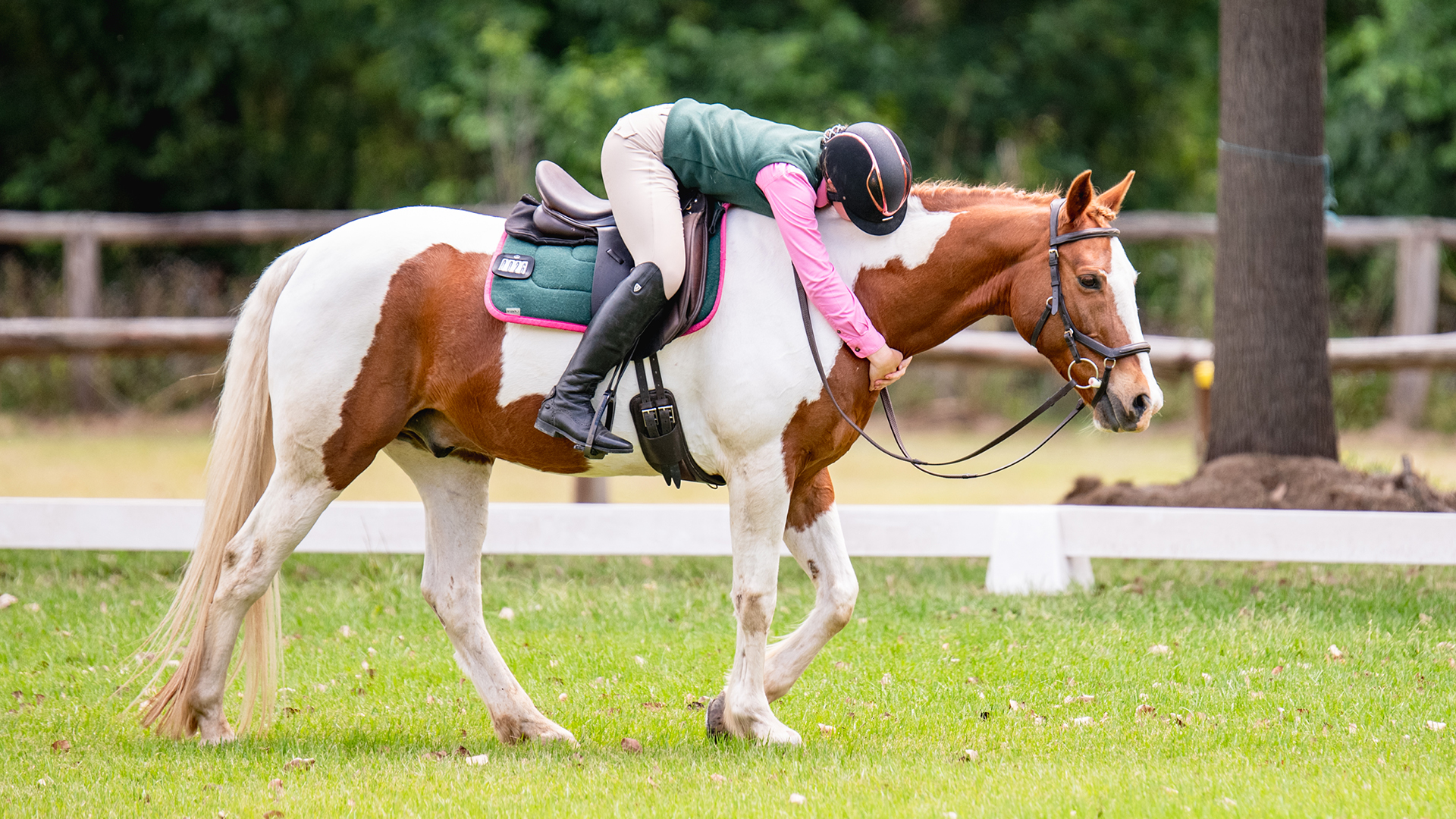Freya Inggs’ journey with horses and Pony Club is one of resilience, patience, and personal growth. From her early days at Riding for the Disabled in Darwin to becoming a cherished member of Canberra Riding Club Pony Club (CRC), Freya has faced challenges that many might shy away from. But it’s her connection with horses, particularly her partnership with her horse Captain Jack Sparrow, that has been her grounding force.
“HE ARRIVED TERRIFIED OF EVERYONE AND EVERYTHING…”
Captain Jack Sparrow, a Gypsy Cob, was rescued by Heavy Horse Heaven in Yass as an unhandled 18-month-old colt. Freya first met Sparrow three weeks after he’d arrived. “No human had been able to touch him at that point, as the truck that brough him from Adelaide to NSW had used brutal force to get him on and off the transport,” she explains. “He arrived at HHH terrified of everyone and everything. I met him and within half an hour he was eating out of my hand and letting me pat his neck. At that point I stated that he would be my next horse, much to the amusement of everyone there.”
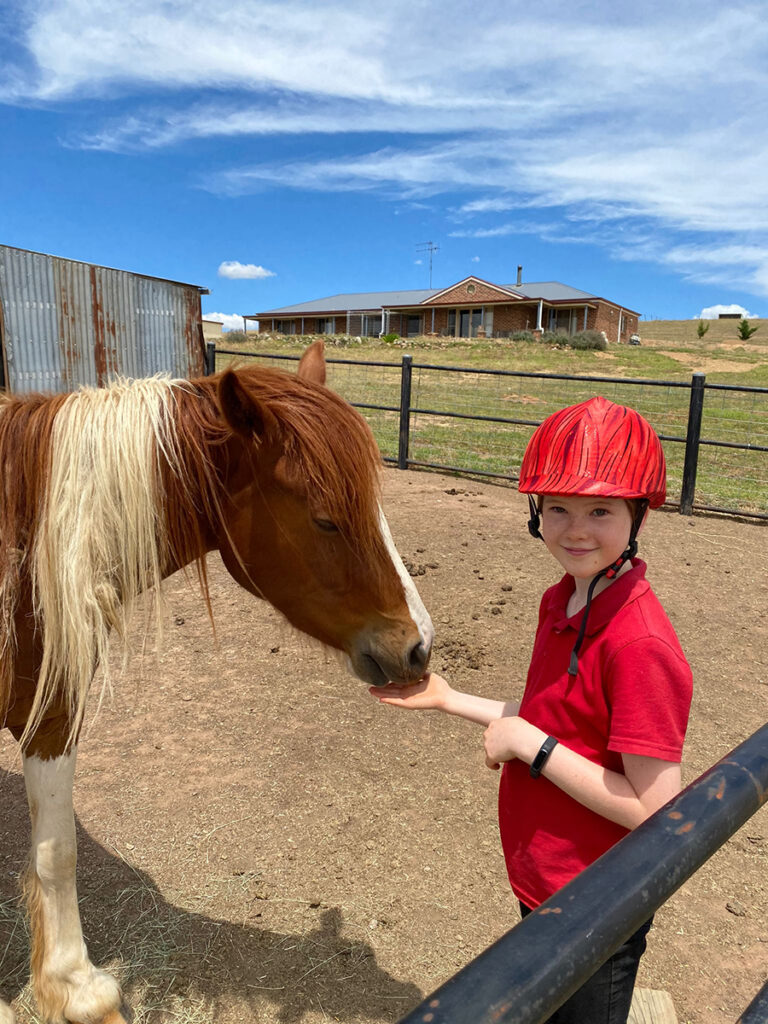
Freya found a connection with Sparrow from the first time they met.
“Within half an
hour he was eating
out of my hand.”
Over the two years that followed, Freya continued to visit Sparrow at HHH and build a relationship with him. “I wanted to let him know that not everything in the world was scary,” she explains.
“After two years, Mum and I decided to foster Sparrow and brought him to Canberra to live with us. Sparrow learnt a lot and continued to settle and grow. We worked with a local trainer to start him under saddle in a kind and patient manner and I started my riding journey with him.”
Freya and Sparrow have been riding together for two years now, but it has not always been smooth sailing. “There have been multiple challenges and working each other out. We are still on a learning journey, but I am amazed and proud of how far we have come since we met four years ago.”
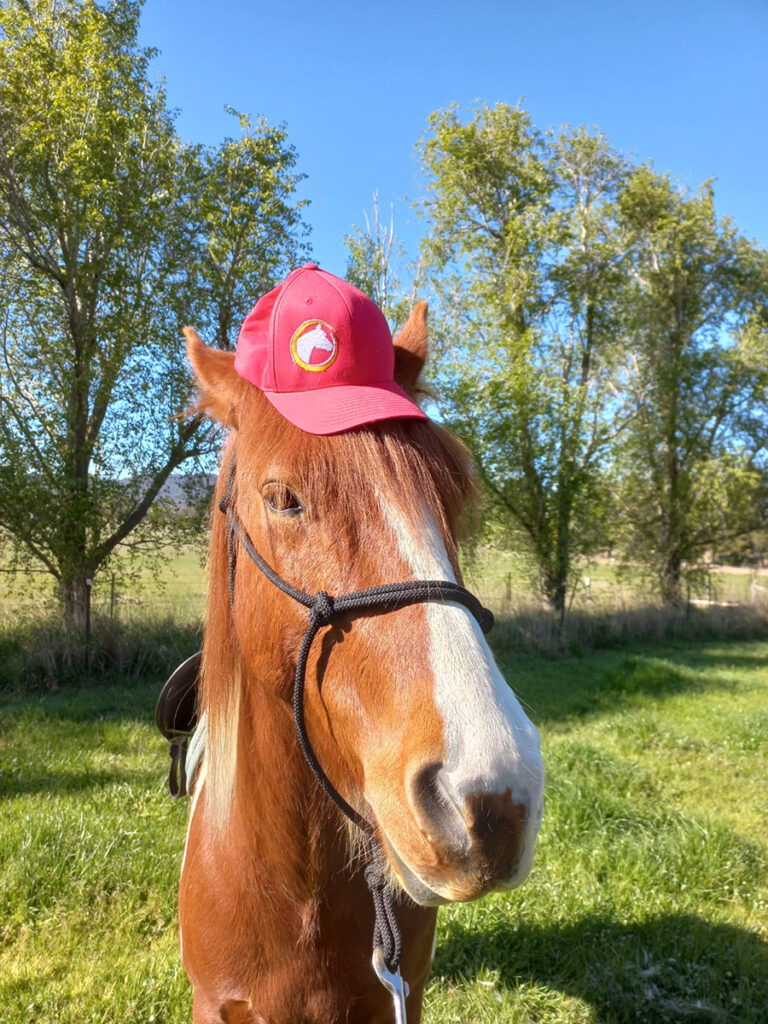
Thanks to Freya, Sparrow has come a long way in four years!
Freya says she enjoys the challenges that inevitably come with horses. “They can bring you highs and lows. I enjoy the non-linear journey of riding and working with horses.”
She believes that being autistic has helped her relationships with horses. “I understand them better than most humans!” she laughs. “Horses ground me and help me get through tough times. I like training horses as I feel a special connection with them, particularly horses that have a trauma background.”
PONY CLUB THROUGH A DIFFERENT LENS
Freya explains that being a neurodivergent rider with Autism Spectrum Disorder (ASD) at Pony Club does mean she receives and process information differently to most other people. “This makes it a challenge to work with many different coaches across Pony Club,” she explains. “I struggle to socialise, so find it harder to have positive interactions with my peers.”
“Your club becomes your
second family and are always
there to support and help you…”
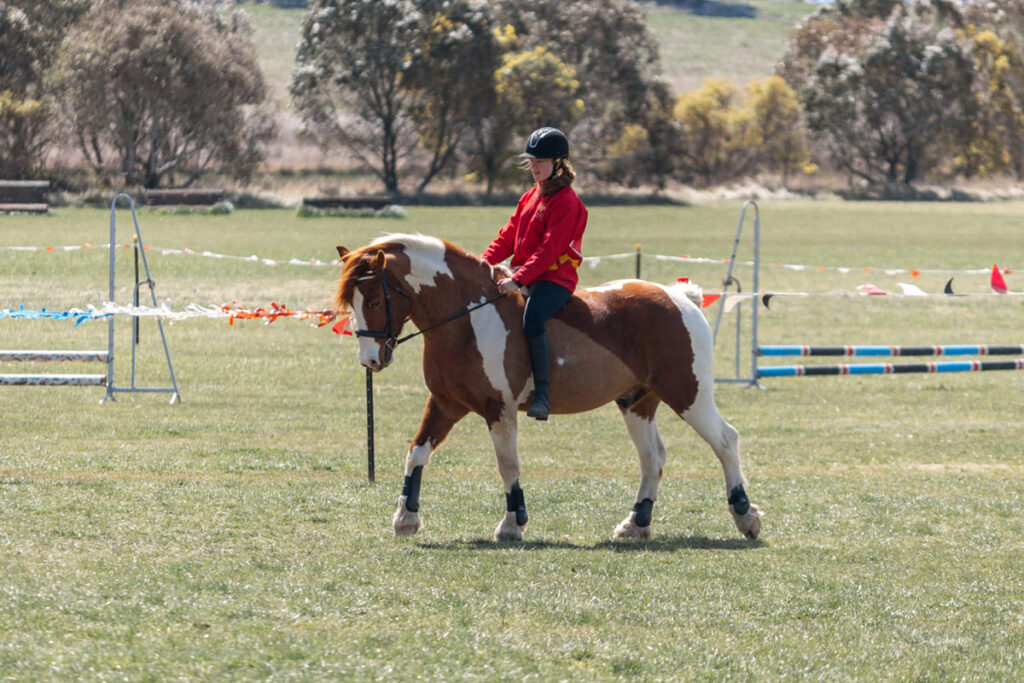
Freya and Sparrow are part of Canberra Riding Club Pony Club.
However, despite these challenges Freya has found Pony Club a very positive experience. “My first rally day in December 2021 (with Hokey Pokey), everyone all accepted me for who I am, understood when I needed help or needed to be left alone as I was overwhelmed, and made me feel very welcome.”
Even though everyone was supportive, settling in was still a challenge at times. “I overcame this by learning the routines of CRC and rally days. I take breaks when needed and all CRC coaches are aware of this coping strategy and allow me to self-regulate before rejoining the activity. Having a supportive club has helped. I have also made friends at CRC and am always excited to go to rally days and see them.”
Over time, the social aspect has become easier. “It is a safe and non-competitive place to learn. Your club becomes your second family and are always there to support and help you. It is easier to make friends because you all share a common passion for horses! It is a social community, so you meet friends from other Pony Clubs and see each other at competitions, clinics and camps.”
As Freya explains, adjustments can easily be made to help any neurodivergent rider, and she encourages others to take the leap and give it a go. “It feels like a safe space because everyone is horse mad. It is a good place to find other neurodivergent people, which makes everyone feel accepted exactly for who they are. Rally days foster communication and socialising by using the common interest in horses.”
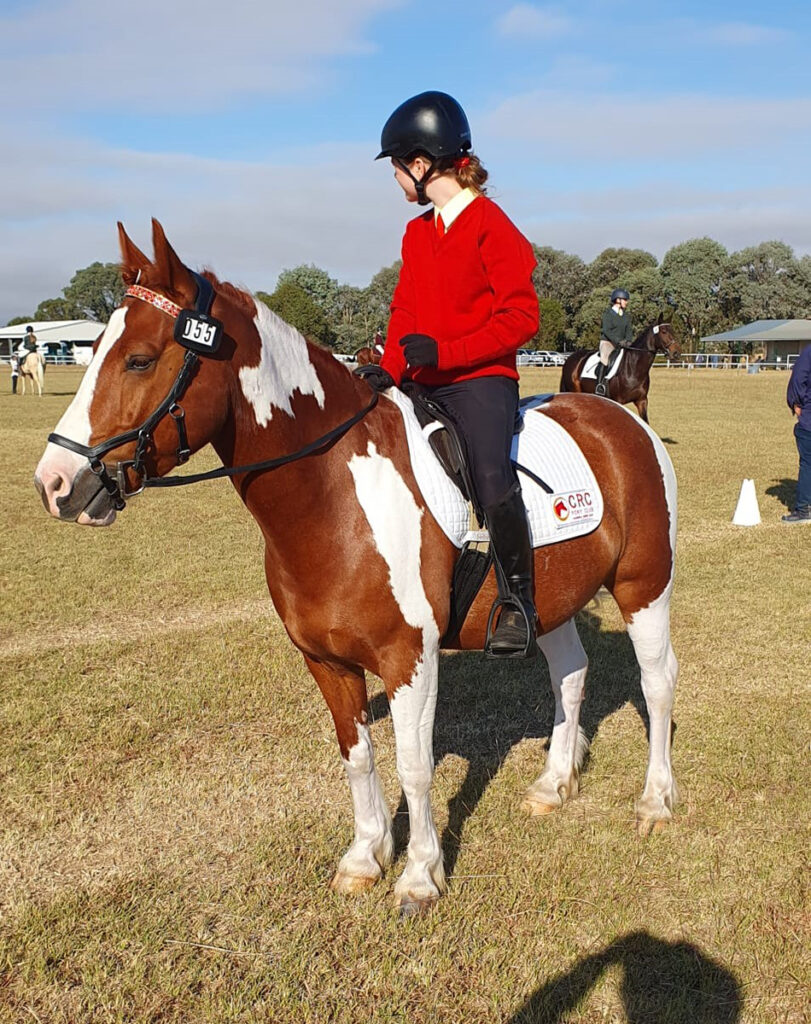
Freya and Sparrow are proud CRC members.
Neurodivergence aside, having a young, green and scared horse at Pony Club – such as Sparrow – has also been another challenge, as it would be for any young rider. “The coaches at CRC were very supportive and allowed me to work with Sparrow at the point that he was at. Other CRC members also loaned me horses to ride at rally when Sparrow was not ready for a particular activity. I had to drop back down to Intro grade for jumping and have never felt pressured by anyone at CRC to move up the grades faster. They have allowed Sparrow and I to take our time building our relationship and skills,” explains Freya of how CRC has supported the partnership.
Freya says senior instructor Franny Barnard has been particularly influential on her journey with Sparrow. “Franny is very knowledgeable and kind, she bends over backwards to help me and always makes adjustments for me at rally day, certificate assessments and at CRC clinics.”
PARTICIPATION & SUCCESS
“I have participated in lots and lots of Pony Club competitions, clinics and camps,” says Freya of the opportunities availed to her via CRC. “These are some of the best memories of my life.”
Freya not only enjoys Pony Club and the opportunities on offer – she’s found success there as well, winning the attendance award in 2024 and also being recognised for her work with Sparrow. “I was recognised for starting him under saddle and the growth and improvement we have made over the last two years,” she notes.
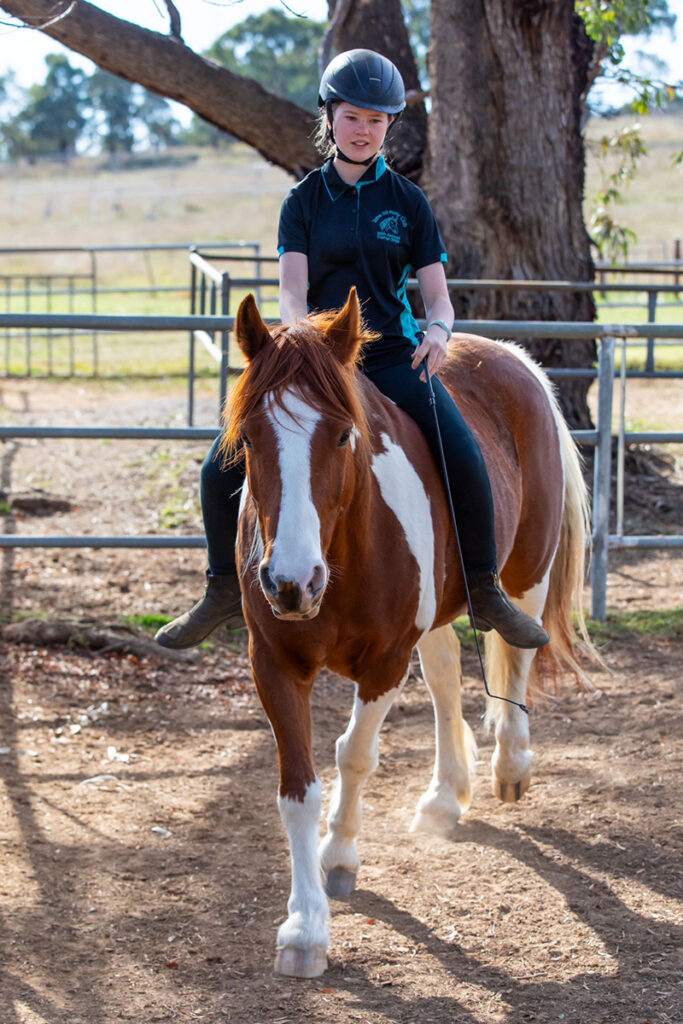
Freya took her time and has built a strong bond with Sparrow.
Not only that, but Freya was also part of last year’s winning Tom Allen Shield team – dubbed ‘Motley Crew’ – at the Monaro Shield Showjumping competition. “We worked well together, encouraged each other all day, celebrated great rounds and commiserated not so great rounds. It made me realise that I could communicate and socialise even in a stressful competition environment as I had the support of fellow CRC members,” says Freya of the experience.
Freya says Pony Club has helped her grow not only as a rider, but as a person. “I have learnt to be a more patient and understanding person. I have been able to grow my social skills using a common passion for horses. Pony Club has helped me develop realistic goals for my riding. I have learnt so many skills as a rider, having access to quality coaches at CRC and at Zone camps and clinics. Being able to participate in so many different activities has developed my riding skills beyond my expectations.”
FUTURE GOALS
Looking to the future, Freya is on the hunt for another project horse. “In the near future I would like to get a young project horse to train and eventually start under saddle,” she says.
Long term, she says she’d love to be a professional show jumper, and once she’s finished school she’d like to study to be an equine dentist and work part-time as a horse trainer. By the sounds of it, through her work with Sparrow she is already well on the way to achieving the latter!
“Take your time, love
yourself and always be
kind to your horse…”
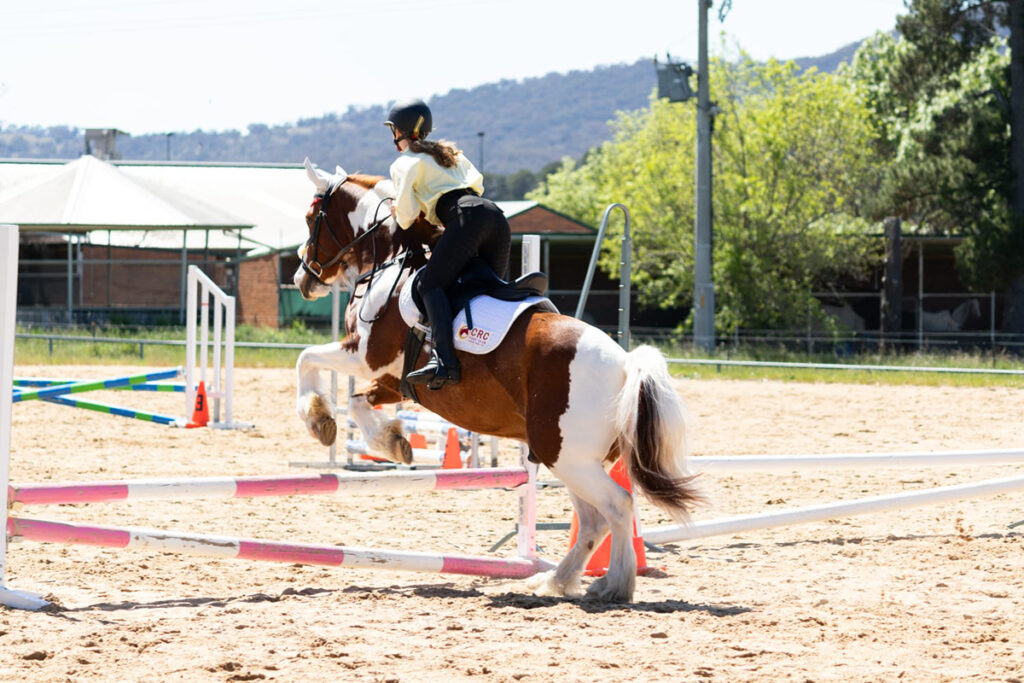
Freya would love to one day be a professional show jumper.
So what advice does Freya have for other young riders who are neurodivergent and thinking about joining Pony Club?
“I would advise someone to advocate for themselves. Tell Pony Club what you need and make sure it happens and never give up,” she says. “I would encourage people to get involved in as many activities as possible. And hang around with the people who accept you for who you are and don’t try and change you.
“I also hope people feel motivated to keep working with their horses despite any setbacks and feel inspired to learn more about training their own horse – no matter their age or ability. Take your time, love yourself, don’t neglect your needs and always be kind to your horse.” EQ

